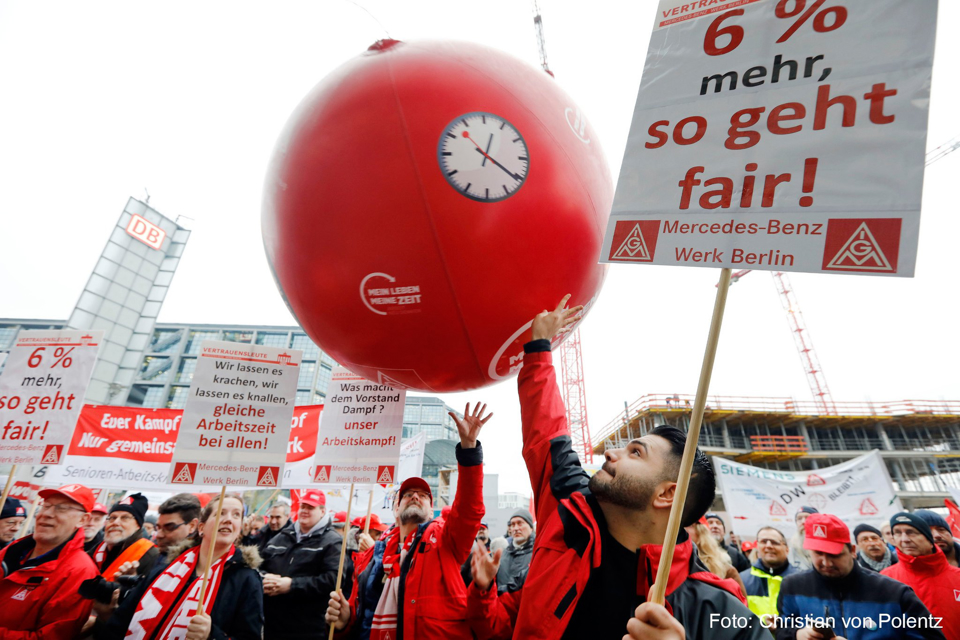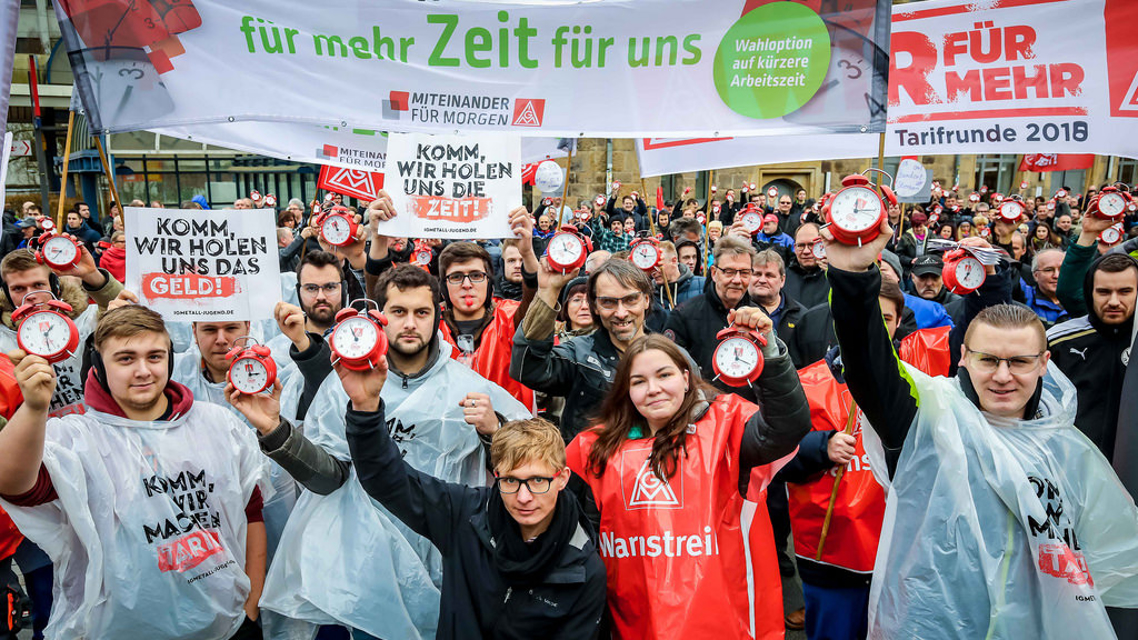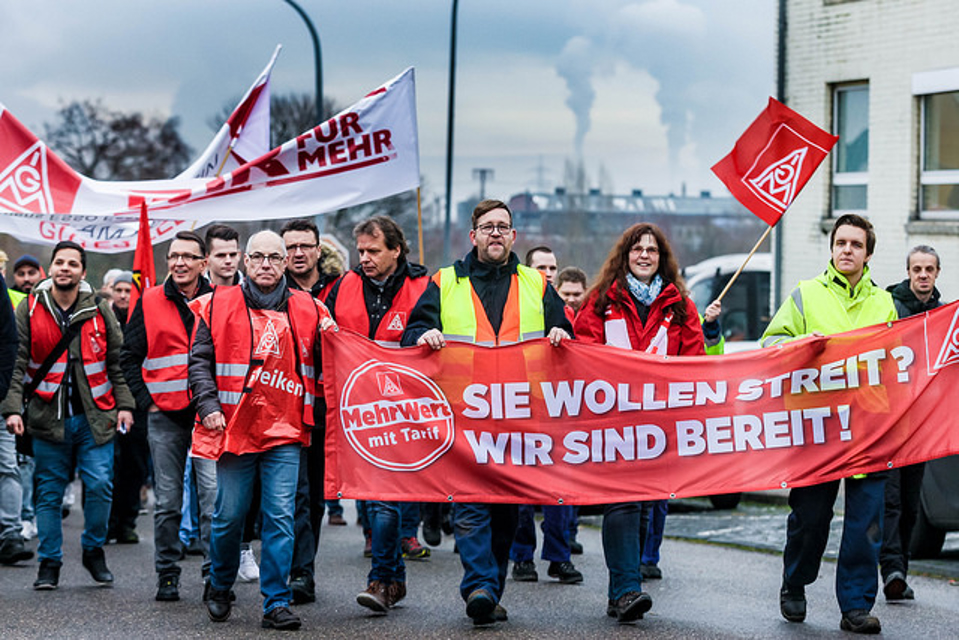Demonstrators were pushing for a 6% wage increase and the possibility for workers to reduce their working week from 35 to 28 hours for a two-year period with limited impact on wages in pursuit of a better work-life balance.
After years of wage moderation in the wake of the crisis, it is now payback time for metal workers in Germany. Backed by a booming economy, full order books and metal companies reaping record profits, it is high time and only fair for German workers to regain their share of the wealth they have contributed to generating.
Digitalisation, the emergence of more mobile work and globalisation have only served to exert additional pressure on workers to succumb to more flexible working time arrangements and to work around the clock. So far, this has benefitted only companies and been at the detriment of workers, who are working themselves into the ground. It is, therefore, only fair that German metal workers demand more say in their working time.
IG Metall is calling for an individual right for full-time workers to shorten their working week for a two-year period with a guaranteed right to return to a full-time position thereafter. For workers who are taking time off to care for children or ageing parents, employers should compensate for the wage loss incurred. By setting this demand, IG Metall puts quality of life at the heart of the negotiation round. It sets a very important precedent for modern working time in Europe by sending the signal that workers want greater self-determination in their working time. They want working arrangements that fit their lives, not only their employers.
The demand by IG Metall for a better work-life balance echoes a similar debate currently taking place in trade unions across Europe on the intensification of work and the pressure from the employers to work more. A recent survey conducted by the French metal workers’ trade union, FGMM-CFDT, points at a strong trend to work longer hours than the legal working time without compensation. This is especially true for white collar workers (“les cadres”) who, by a large majority, report that their effective weekly working time is around 39 hours instead of 35 and hours without any sort of compensation. Furthermore, the study highlights the boundaries between working time and free time are becoming blurred, especially for people who can work remotely using mobile devices.
In December 2017, the new Austrian government announced that it will allow companies to extend the duration of a working day to 12 hours, or 60 hours on a weekly basis. This is a clear attack on workers’ rights and on trade unions that have so far managed to oppose the repeated push from employers to increase working time.
Many trade unions in Europe are concerned about workers increasingly having to work under flexible working time schemes (flexible shift work, especially night shifts; long working hours without enough time for recreation; lack of predictability of work, which prevents workers from organising their private life, etc.). This, often combined with increased workload and more stress caused by the implementation of new production systems, is increasingly becoming a cause of illness and psychosocial problems. Trade unions are also concerned about the increased pressure exerted by the employers for further flexibility, which is an attack on workers’ rights and represents a serious threat to their health.
Shaping working time for the future in an evolving working world is a challenge that the trade unions are currently faced with. It not only determines good work, but also good lives. It also defines how we can better share work. IG Metall is spearheading this fight for a modern working time model. It represents a core issue for industriAll Europe and will be a central topic of the Collective Bargaining Conference “Labour 4.0: strong Collective Bargaining to shape digitalisation”, which will take place on 6 and 7 December 2018 in Bratislava.


